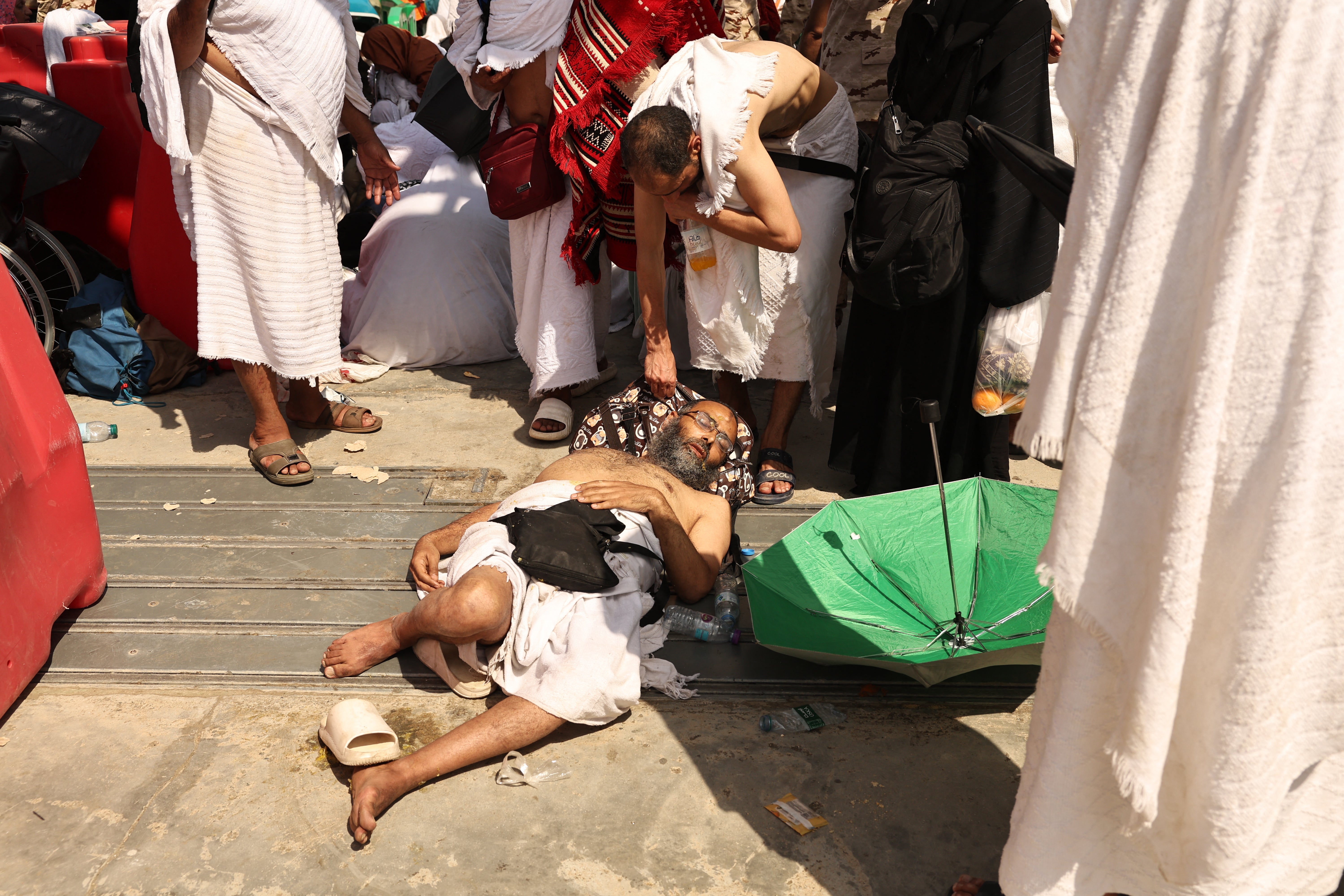Over 1300 people dead during 2024 Hajj pilgrimage amid heatwave
This year about 1.8 million pilgrims arrived in Mecca and walked long distances amid a deadly heatwave with temperatures exceeding 51C
Your support helps us to tell the story
From reproductive rights to climate change to Big Tech, The Independent is on the ground when the story is developing. Whether it's investigating the financials of Elon Musk's pro-Trump PAC or producing our latest documentary, 'The A Word', which shines a light on the American women fighting for reproductive rights, we know how important it is to parse out the facts from the messaging.
At such a critical moment in US history, we need reporters on the ground. Your donation allows us to keep sending journalists to speak to both sides of the story.
The Independent is trusted by Americans across the entire political spectrum. And unlike many other quality news outlets, we choose not to lock Americans out of our reporting and analysis with paywalls. We believe quality journalism should be available to everyone, paid for by those who can afford it.
Your support makes all the difference.At least 1,301 people died during this year’s Hajj pilgrimage that took place during an exceptional heatwave in Saudi Arabia, according to an official death toll.
This year about 1.8 million pilgrims arrived in the holy city of Mecca and walked long distances amid a deadly heatwave with temperatures exceeding 51C (125F).
Saudi health minister Fahd bin Abdurrahman Al-Jalajel said 83 per cent of the total fatalities were unauthorised pilgrims who arrived in the city without a permit, as the Islamic desert kingdom faced criticism over poor management.
According to reports, they walked long distances under direct sunlight without proper shelter.
Mr Al-Jalajel told the state-owned Al Ekhbariya TV that 95 pilgrims were still being treated in hospitals and some of them were airlifted to the capital for treatment.
However, the identification process was delayed because there were no identification documents for many of the dead pilgrims.

Hajj, which is an obligatory religious duty for Muslims who are physically and financially able to undertake the journey at least once in their lifetime, began on 14 June this year.
The Saudi Arabian government provides a set number of visas every year. However, hundreds of thousands of pilgrims who are not able to secure permits still travel on tourist visas arranged by unlicensed tour operators.
The government has been criticised for their management amid rising deaths. People complained of a lack of air conditioned tents and official Hajj transport as many packed into overcrowded mosques.
Around 660 people from Egypt died during the pilgrimage but only 31 of them were authorised, officials in Cairo said, with authorities revoking licenses of 16 travel agencies.
More than 200 people from Indonesia and 98 from India have died in Mecca. Pakistan, Malaysia, Jordan, Iran, Senegal and Sudan have also confirmed deaths.

Jordan said it has detained travel agents who were part of a racket organising unofficial travel of Muslims to Mecca. Two US citizens have also died in Mecca.
Tunisia president Kais Saied said their minister of religious affairs was sacked after 49 citizens died during the pilgrimage.
According to the Saudi National Center for Meteorology, the maximum temperature ranges between 46C and 49C in Mecca and around the city.
Deaths are not unusual during the Hajj due to the long voyages in previous times and physically demanding rituals. But this year’s tally was unusually high, suggesting exceptional circumstances.

In 2015, over 2,400 pilgrims were killed in a stampede in Mina, the deadliest incident ever to strike the pilgrimage. Saudi Arabia has never acknowledged the full toll of the stampede. A separate crane collapse at Mecca’s Grand Mosque earlier the same year killed 111.
In 1990, more than 1,426 people were killed in a stampede.
Climate change is expected to make the Hajj pilgrimage more riskier.
A 2019 study by experts at the Massachusetts Institute of Technology found that even if the world succeeds in mitigating the worst effects of climate change, the Hajj would be held in temperatures exceeding an “extreme danger threshold” from 2047 to 2052, and from 2079 to 2086.

Join our commenting forum
Join thought-provoking conversations, follow other Independent readers and see their replies
Comments